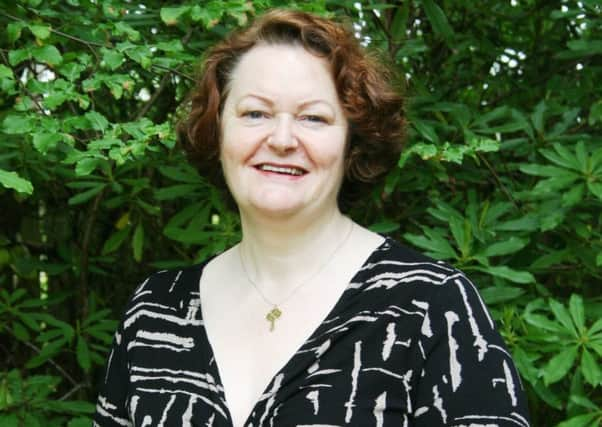Euan McColm: Don't malign moonlighting MPs


Last week, it emerged that Dr Philippa Whitford, the nationalist MP for Central Ayrshire, worked £500-a-day shifts as a locum consultant at Crosshouse Hospital last December.
When MP Pete Wishart recently insisted that no SNP parliamentarian had a second job, he was simply wrong.
Advertisement
Hide AdAdvertisement
Hide AdScottish Labour went on the attack, which seemed fair enough: Whitford’s decision to work for NHS Ayrshire and Arran made a mockery of the SNP’s pious declarations of complete devotion to constituents.
But Whitford was not without her defenders, especially on social media, where nationalists would have had you believe that she had singlehandedly saved the NHS by covering a handful of shifts.
Of course, the affair will have no impact on the popularity of the SNP. Hypocrisy will be excused.
Perhaps, in this instance, that’s for the best. It seems to me that we should ensure we’ve really thought through the implications of preventing politicians from having second jobs before condemning them for doing so.
Shortly after being elected as an SNP MSP in 1999, my fellow columnist Andrew Wilson was invited to a dinner hosted by the then Chancellor of Oxford University, Roy Jenkins.
Andrew was seated directly opposite his distinguished host and explained he felt it a great honour to meet him. Baron Jenkins asked what Andrew did and he explained that he was a newly elected member of the Scottish Parliament. Yes, yes, came the reply, but what else do you do?
To a politician of Jenkins’ vintage, the idea of a parliamentarian having a professional interest outside politics was perfectly acceptable. It was, in fact, the normal state of affairs.
These days, we take a different view. Or, rather, politicians proclaim different standards for themselves.
Advertisement
Hide AdAdvertisement
Hide AdWhitford represents a party that’s made ground on its opponents by declaring itself morally superior. Sick to the back teeth of those peas-in-a-pod Labour and Tory graspers? Why not vote SNP, where every candidate’s selected for their selflessness and compassion? Why not vote for a party that understands your frustration with the old politics?
This stuff, we know, works. It has worked brilliantly for the SNP, which – despite having been in government at Holyrood for almost nine years – continues to pull off its anti-establishment act with considerable style.
The SNP’s line on second jobs doesn’t just proclaim the piety of the party’s politicians, it implicitly says that members of the “Westminster” parties are driven by greed. With the raise of an eyebrow, it says those politicians are venal. And, because years of suspicion that politicians were in it for themselves was, in many cases, shown to be true by the MPs’ expenses scandal, this is perfectly believable.
The Scottish Nationalists brilliantly caught a public mood and stood beside voters as a reckoning began – with the banks, with the media, and with the political establishment.
The case of Whitford illustrates the risks of setting unreasonable standards. Yes, the charge of hypocrisy stands, but only because the SNP took a foolish position that made it so.
Is it really so terrible that Whitford, during a parliamentary recess, returned to her former profession? I’d say no, for two reasons. First, if a hospital is short of key staff, I’d like them to be able to find suitably qualified substitutes. And second, if Whitford is to argue on matters relating to the health service, then experiencing it as it now is seems a reasonable use of her own time.
Here, I suspect, is where matters get more difficult for most politicians. We may forgive an MP for working as a doctor because doctors are, to most of us, heroic figures who saved an aunt or were good to grandpa at the end. But what of those politicians whose second jobs are less worthy? What of the accountants and the lawyers and the journalists? Shouldn’t they be prevented from lining their pockets?
We cannot, of course, have different rules for different politicians. We cannot make doctors an exception. If Whitford is to be allowed to work in a second job, then so must other politicians.
Advertisement
Hide AdAdvertisement
Hide AdI’m unfashionably relaxed about this. So long as no conflict of interest arises, why shouldn’t elected members do other things?
We want politicians who understand the real world, don’t we? We want people who know how business works, how the law affects people, how the health service is performing and wouldn’t that be best achieved by allowing politicians to keep a hand in?
The current vogue is for politicians who’re hopelessly, creepily devoted to us. We demand their full attention and – a fair number of us – use social media to explain the many and varied ways in which we dislike them and disapprove of everything they’ve ever said or done.
I yearn for the days of Roy Jenkins, when politicians could nip off early on a Friday to perform a heart bypass and nobody lost his mind about it.
The SNP are the current worst offenders when it comes to the sort of piety that can bite the likes of Philippa Whitford on the bahookey. But before the nationalists made an art-form of proclaiming moral superiority, Labour was doing exactly the same thing when it came to the Tories.
How I wish this tiresome race to the moral high ground, where the hypocrisy of opponents is always “breathtaking” or “rank”, would end.
Politicians have only themselves to blame for the damage to their reputations caused by the expenses scandal. The rest of us can choose how far we expect elected members to go in making good for that affront.
It may appear right and proper that politicians should not take on extracurricular work, but it’s a demand which will do nothing to improve the quality of our elected members. «